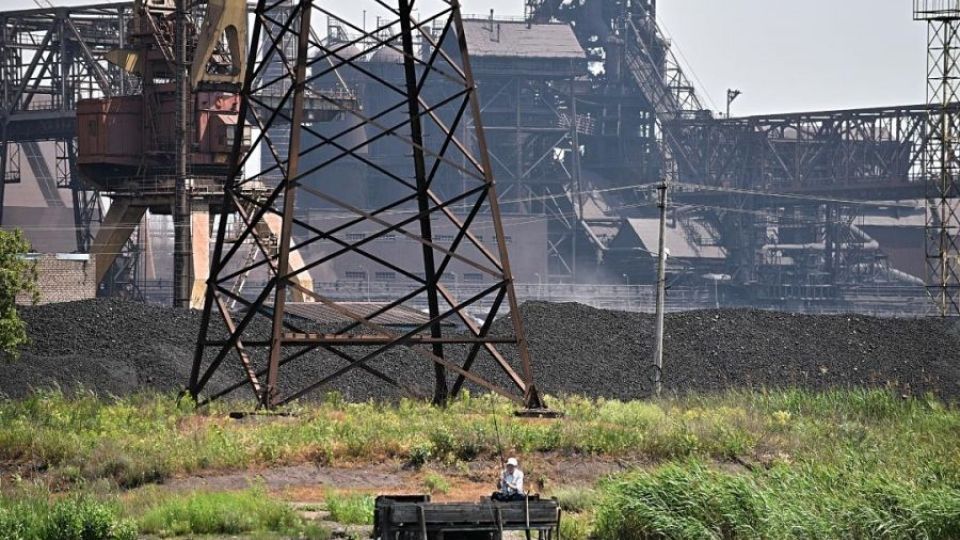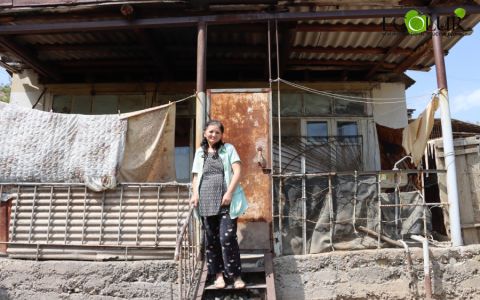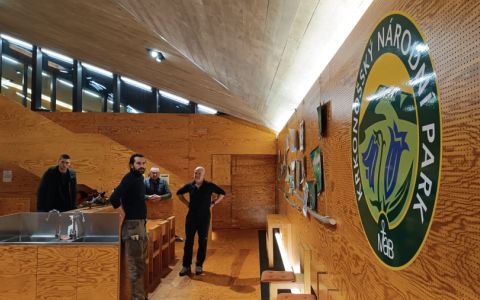Dnipro, Zaporizhia, or Mariupol. These cities in the Mid-East of Ukraine form the heart of local industry. But local power plants and factories – the result of economic growth in the old Soviet times – have been left with a somber heritage. Tens of thousands of Ukrainians die from air pollution every year. According to Tamara Kharchilava, the lawyer of the Kyivan organization Ecoaction, the solution lies in an active civil society.
Ukraine is facing a number of problems. How serious is the air pollution compared to the other issues, if it is possible to judge it that way?
In my opinion, it is definitely the biggest one. According to the World Health Organisation, Ukraine has had the most deaths caused by polluted air based on population. Even our Ministry of Ecology and Natural Resources stated that these statistics cannot be overlooked anymore. The impacts are usually obvious: people cannot breathe normally, and the rate of pulmonary diseases in children rises. But I doubt that the people in Ukraine are interested in this topic unless they are directly affected by it. They simply do not realise how serious the situation is and that it calls for an immediate response.
What is the usual stand on environmental protection in Ukraine?
Not a very progressive one, of course. According to a recent opinion poll, environmental problems are considered important only by some 5% of inhabitants. Naturally, the situation differs in industrial cities, where people have to deal with foul smells and health threats on a daily basis. The pollution is even visible in the form of fallout on cars or tree leaves. Unfortunately, this only makes around two million people out of 45 million aware.
Arnika and Ecoaction focus primarily on five industrial cities – Dnipro (formerly Dnipropetrovsk), Zaporizhia, Mariupol, Kharkiv, and Krivoy Rog. Are any other agglomerations affected in a similar way?
If we consider only industrial emissions, there are many factories in the whole Dnipropetrovsk region. For example, Kamianske (formerly Dniprodzerzhynsk) and its 250 thousand inhabitants suffer from extreme pollution. In Kyiv the air gets poisoned by an incineration plant not far from my apartment, and trust me when I say it is horrible. There is also a coal power plant producing tons of carcinogenic ashes, and both plants lack proper filters. South from Kyiv there is probably the filthiest heating plant of them all – “Tripolska” in the city of Ukrainka not to mention the Burshtyn power station in the Ivano‑Frankivsk region in west Ukraine. There are a lot of these plants, and each of them presents a serious health threat for local people.
How do people from these cities react to such life conditions?
We could say that they are more active compared to a few years ago especially in Mariupol and Krivoy Rog. The greatest success this year has been the interconnection of the citizens, along with those from Zaporizhia, and together we held an all-day-long event to draw attention to the problem. Never before has such an event been organised by civic activists in three different cities in one day with one purpose. That is quite an achievement.
Civic engagement in Ukraine can also have somewhat unusual forms, such as the TV show New Leaders (Нові лідери)…
Yes, people try to get support for their public projects in the show – usually related to culture, sport or health. One of the five finalists is Maksym Borodin, a representative from the Mariupol City Council and the organiser of a local campaign for clean air, with whom we cooperate. If he wins, he will receive one million Ukraine Hryvnia to purchase a pollution monitoring system.
Could we deduce from this that the activists in Ukraine receive support or that they are popular among citizens?
Not really, it very much depends on the topic. Borodin is undoubtedly successful and perhaps even famous in Mariupol. But generally speaking, activism is not always perceived positively. Especially people who were expecting rapid changes for the better after Euromaidan have often been disappointed and frustrated by the development in recent years. Many of them lost faith and think of us as weirdos.
Can you predict the development of this issue?
I am not sure I dare to. I am afraid that the Ministry will not be active enough. Definitely not without public pressure. People have to show the politicians that they demand substantial and rapid changes, but there is only little chance without civic engagement. We need to keep in mind that the plants are controlled by Ukrainian oligarchs.
So, what can we do to to improve the situation in the near future?
First of all, our government has to implement the European Industrial Emissions Directive. It would help us solve some key issues like threats to the environment, including an improvement of the pollution monitoring system. Unfortunately, the Ministry does not seem to be willing to adopt the document. There are actually many people who have not even heard about it yet.
How does the Ministry want to solve the problems?
Let me use two examples from recent meetings of two workgroups which have been dealing with environmental reforms. One of them was about a change of bodies responsible for environmental inspections – nowadays we have the Ecological Inspection, but it should be replaced by the “Ecological Service.” We do not have any details yet, but it will likely be only a cosmetic change without actual results. The second group should provide open access to all information about polluters or permits. It actually seems to be just a simple automated system collecting statistical and unverified data. We are trying to comment on the drafts, hopefully with some results.
The laboratories of the University of Chemistry and Technology in Prague are finishing an analysis of samples gathered in May with the help of Arnika. How will the data be presented?
In December, we are going to organize so-called round tables in individual cities to meet the authorities and local activists. The main goal is to discuss the results of the analyses and to find a way to solve the whole problem. Right now, we are not sure who will participate on behalf of the authorities, because it is a delicate topic. But we hope the representatives of individual companies make a statement. With the help of local activists, we would like to present the study at press conferences in all five cities.
What attitude can we expect from plants that might prove guilty?
The managers concerned have always promised to make changes to protect the people and the environment in the past, but usually nothing has happened. The best example of this is Mariupol where the thick murky smoke from the old and obsolete power plants plagues the city despite heavy protests and several affirmations. The owners/oligarchs could not care less about their impact on the environment, and personally, I do not expect a pro-active approach from them.
What about the role of international organisations and institutions?
I suppose the EU could have the biggest influence on our government through the already mentioned directives in combination with various grants. As for the NGOs, many of them help us in different ways just like Arnika. In their case, we are talking mainly about sharing necessary experience for our campaigns, but we also receive financial support of course, for example from the Czech Ministry of Foreign Affairs. Such help makes it possible for us to function at all, because we could not be independent without it.

Tamara Kharchilava is a lawyer, eco-activist and community development coordinator of the NGO Ecoaction (Екодія) in Kyiv. She has worked with Arnika to protect villagers from the business practices of the “chicken king”, the oligarch Yuriy Kosyuk.







